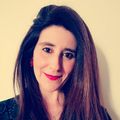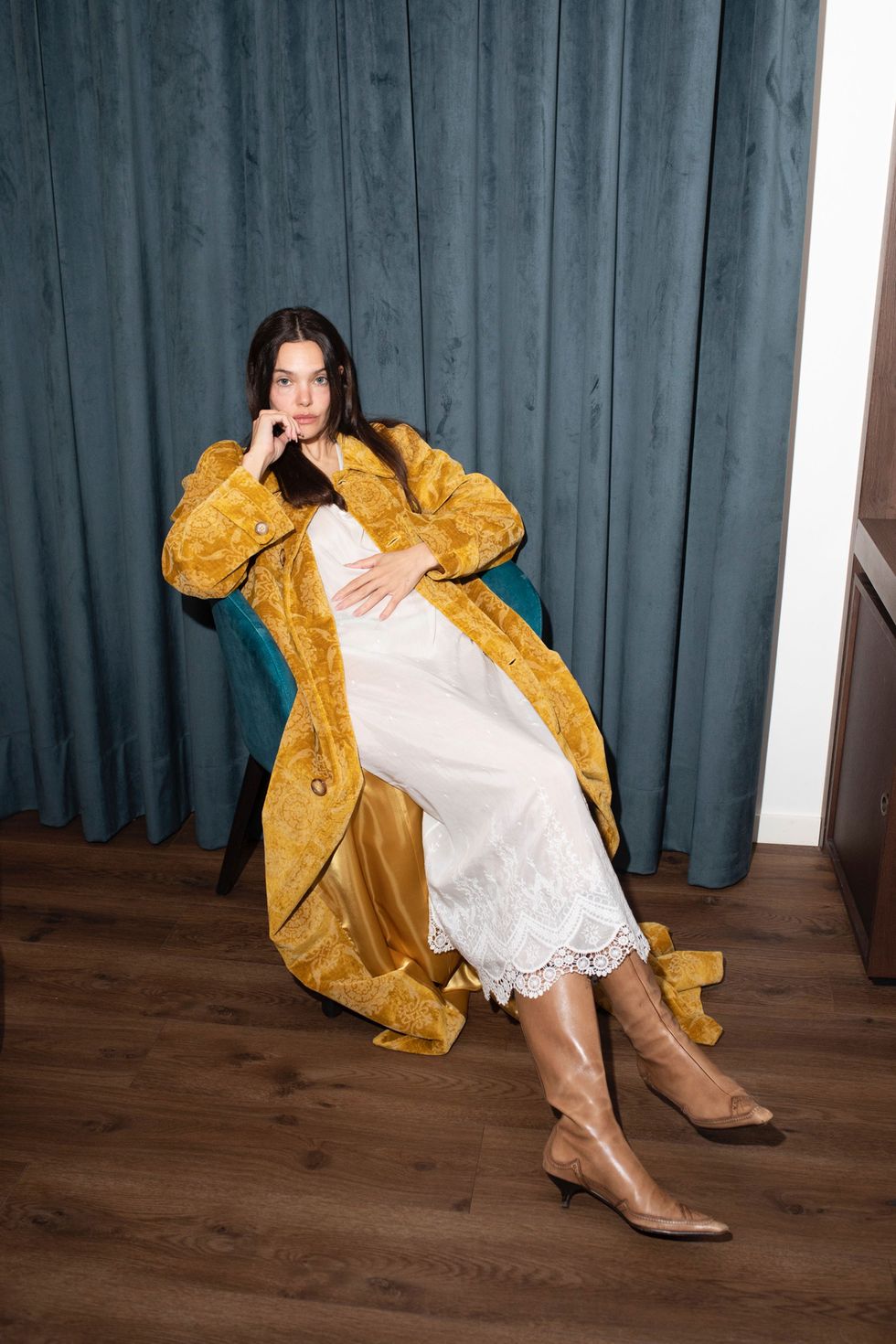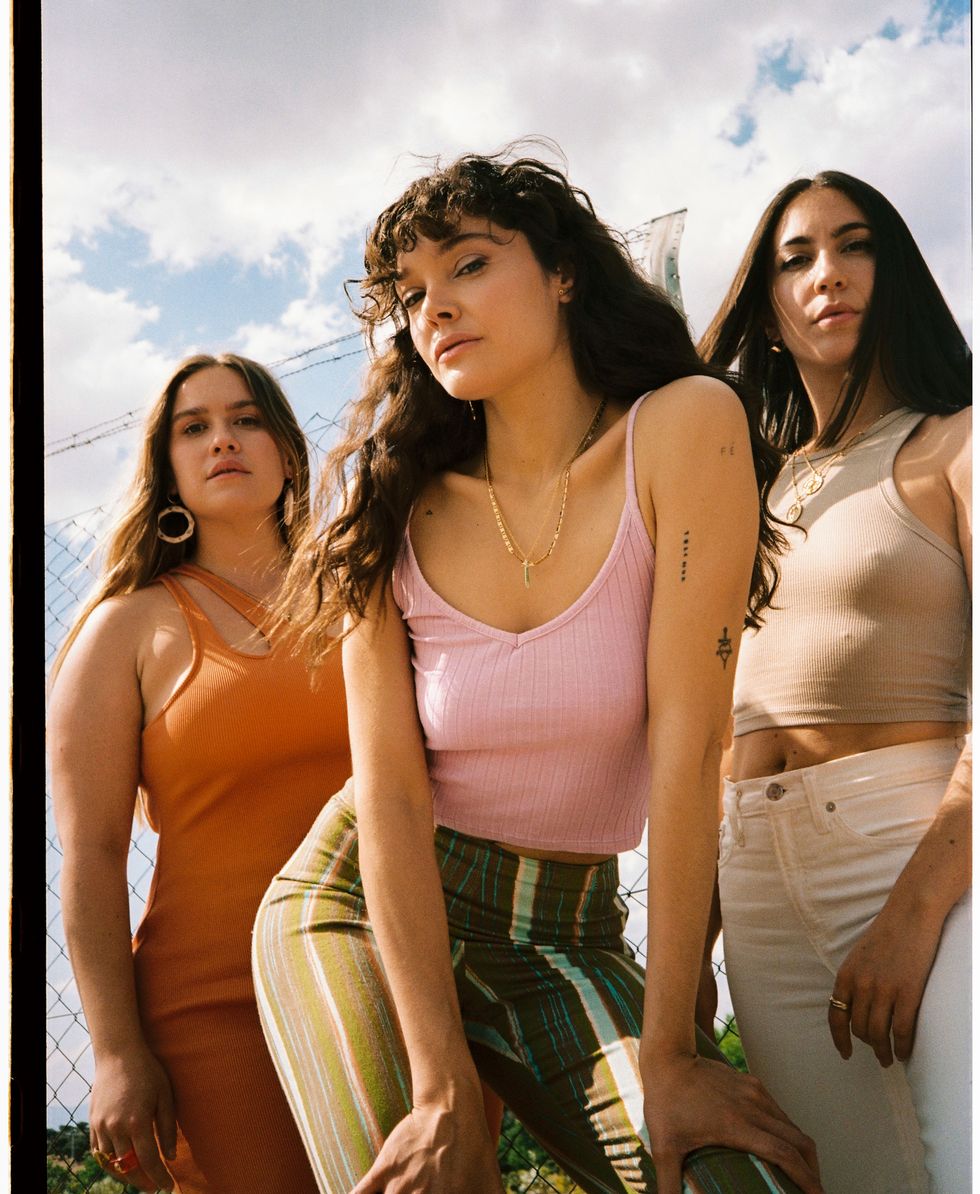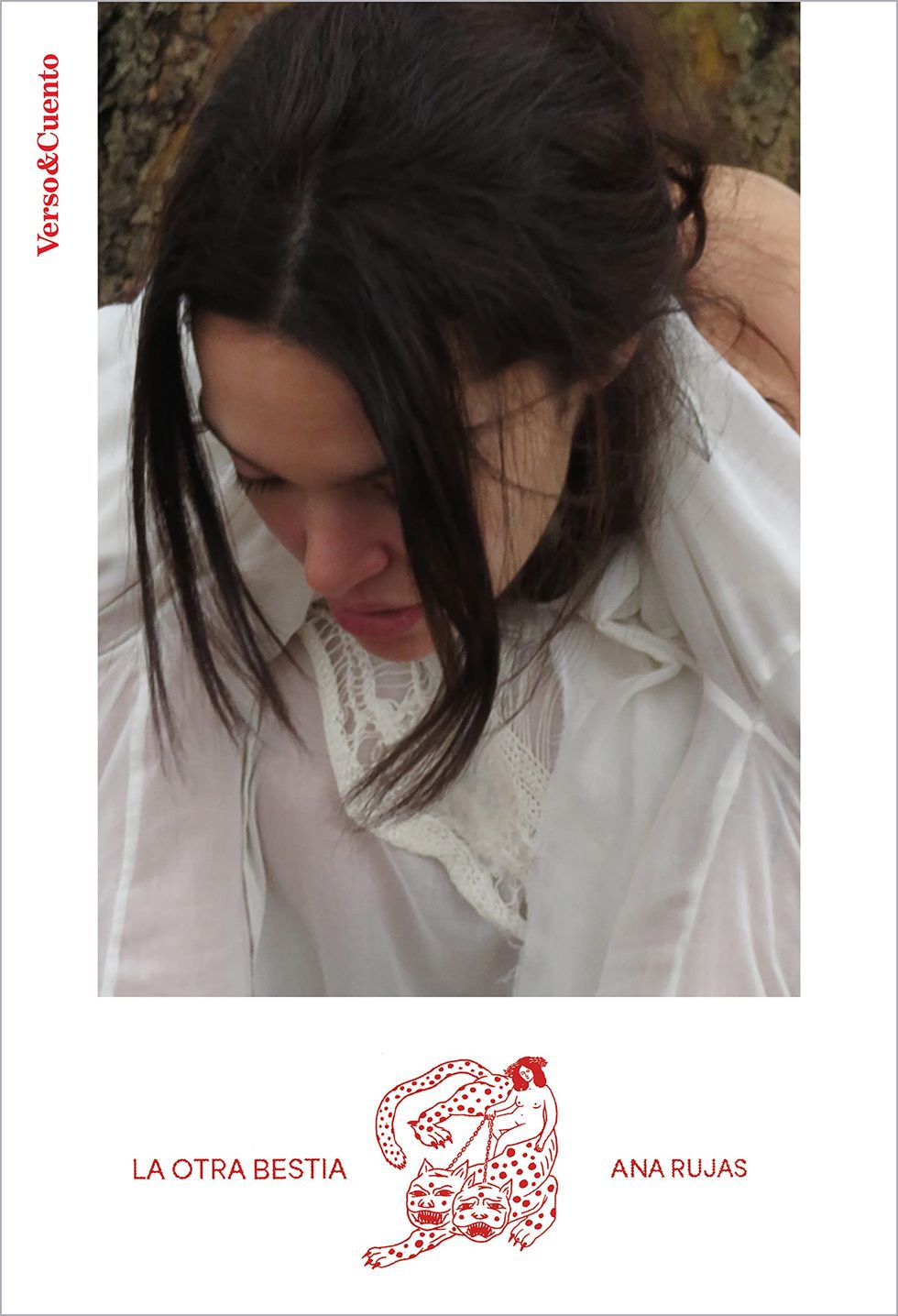It is possible that the first time you saw Ana Rujas on screen off in series like ‘They talk, Kantan, they lie’, ’90-60-90. Secret diary of a teenager either ‘Hispania, the legend’. His characters in these productions came about thanks to the fact that he began to feel a special fascination for reciting texts and he knew that the tables were the ideal place to do so. “When Lorca played at school, I wanted to say his texts and that is done in the theater, so I started to study,” she tells us during an interview to talk about her new project on paper.
The actress, who had already expanded her talent into other facets as a theater and television author, is now launching her first book entitled ‘The other beast’. It is a compilation of thoughts that the creator of ‘Cardo’, one of the best Atresplayer series, wrote down on her phone over several years, bits and pieces that were forming this beast of which she wants to make it clear that what is in it it is fiction, although some passages lead us to think that they may be autobiographical.
How do you feel in this new skin of a literary writer?
I have not found myself different, only when I saw that it was published and it became real.
Do you feel modesty when exposing such intimate thoughts?
Well, it’s an autofiction and the character, the other beast, is not me. More than shame, I feel vertigo for being the first time I publish a book.
At times the reader may think that there are details that are autobiographical…
I start from me, but there are many fictional things that are not real. It’s not an autobiography, far from it, so in that sense it didn’t scare me so much because for me it’s an artistic project.
Do we all have a beast inside?
I think so, and if we gave free rein to that most hidden part of each one of us, things like this would come out. I like mine a lot.
Carlos Vergara defines you as a “sharp tiger” in the prologue. do you look like that
Well, I like your description. I like it.
Not all texts are recent. How have you evolved since you started writing them until now?
How do we evolve? In the end, some things are interesting at a given moment, then you grow up and you are interested in others, but I find it nice and curious, because my way of writing in the first part is not the same as the one in the end. It would have been impossible to write the text of ‘The Origin’ now because it wouldn’t come out, but I love having written it because it is recorded that it was done that way. The topics that interest me now are others.
Has this book helped you to know yourself better?
I imagine so, because I suppose it is very introspective to stop to write.
There is a moment when you talk about the discomfort of acting. Have you felt it in first person?
No, for me, acting is about being real and an actress tries to be as real and true as possible. I love my profession and what I’m saying is that I don’t like the word act when you see people act because what you want to see is the truth. It was a reflective text about acting, not at all against it. I was thinking about how you can call acting when we should be real and that it will be a ‘fake’ if you catch that we are acting. When I see the performance I want to not see that they are acting, I want to pursue the truth.
You talk a lot about beauty. Where does this obsession come from?
I have long cared about the search for beauty, surrounding myself with the beautiful or writing in the most beautiful way. This can be seen in the text of Lago Di Como and it is also a literary resource, the beauty of the Renaissance and its painters. There are many topics that have to do with beauty for beauty’s sake and that search of wanting to be surrounded by it for a while.
Religion is also another of the great themes that was very present in ‘Cardo’ and now in these pages.
I guess it comes to me since I was a child because I went to a religious school. In adolescence it is something that I put aside for a bit and then, when I found myself in a situation that was more in contact with the spiritual, I reconnected with that faith, spirituality, religion…
The physique and the pressures that women suffer also appear. How are you doing this?
Being an actress you are always very exposed, because we work with our bodies, you go to a premiere and they have to see how you are dressed. I have lived with fashion for a long time and I like it, but you have to do an exercise to not feel so slave. Over the years, I feel less, but I would be lying if I said that I am calm with everything, that I don’t care or I don’t look at anything. Of course, I try to have a healthy relationship with all this kind of thing. Like everyone, I still worry about it and care about it, but I manage it in the best, healthiest way possible.
In the book you say that at 30 you have to clean up. What did you throw out?
And sooner or when you realize [se ríe]. I didn’t, well I don’t know if she did or not. It is a reflection on the fact that sometimes one is exposed to situations that one does not like without considering in the bottom of their hearts what their laws and values are. Perhaps it is not good for you to be in certain places or environments or to force friendships or relationships with people with whom you do not share those laws of the heart and it is fine and nothing happens, but realizing that is loving yourself more and not forcing situations they are not going anywhere. You are what you are and people who are in tune with your heart will come closer. I think that at a given moment, I realized and made this reflection more.
You dedicate this work to your mother and sister. Are they your references?
Yes. My mother is a very referent and has helped me a lot. She has allowed me to be very free, to have my own opinion and that is very important. She has given me a lot of freedom since I was little to have my own way and she has not conditioned me with what she wanted or would have wanted to do. Leaving freedom must be difficult for a mother. She has always been with me and has never talked to me about failure so that I can go through and if she doesn’t turn out as she expected, take it as a lesson.
After the success of ‘Thistle’. Any new script in hand?
Yes, there is a very important and beautiful project that is taking shape. I hope I can tell more soon.
What he can tell us about is your participation in ‘La Mesías’…
It is amazing because nothing like this has been done in Spain. I am happy to be in the cast, to work with Javier Calvo and Javier Ambrossi. I always say that an actress should do a Lorca once in her life and also something with them.

Marieta is the current affairs and culture editor at Cosmopolitan and an expert in film and television series for more than a decade. When she is not writing, you will find her in front of the screen analyzing the latest releases from Netflix, Prime Video, HBO Max, Disney+ and the rest of the streaming platforms to recommend those interesting titles or those that are going to blow up.
Between criticism and television fiction news, interviews with actors. On his recorder you will find talks about his interviews with Blanca Suárez, Mario Casas, Úrsula Corberó, Ana de Armas, Miguel Ángel Silvestre, Leonardo Sbaraglia, Lily Collins, yes, ‘Emily in Paris’ or Christina Hendricks, the redhead from ‘Mad Men’ , to name a few.
In other professional stages, she has also written about gastronomy, fashion and beauty. In fact, she is the author of the essay ‘The secret face of the beauty business’, from the Almuzara publishing house.
Marieta Taibo has a degree in journalism from the Complutense University of Madrid and has a Higher Course in Fashion and Luxury Marketing and Communication from Elle magazine and the Complutense University. Her first steps as an editor were in the economics section of La Clave current affairs magazine until she made the leap to society and culture, her true passion. Later, she worked at El Confidencial and then at the women’s magazine AR as coordinator of the cultural agenda and head of the film section. From there, she made the leap to Supertele and TP magazines where she spent ten years writing about movies and series, work that she combined as a contributor to Babylon Magazine doing in-depth reports on culture, until she arrived at Cosmopolitan six years ago.
Ana Rujas: “I feel vertigo for being the first time I publish a book”



